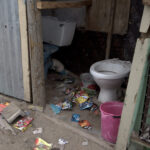Globally, one in four private healthcare groups surveyed won’t work with governments.
Whether the National Health Insurance (NHI) succeeds or fails will depend on public-private partnerships. But the scheme will have to overcome more than just money woes to get the two sectors to settle old quarrels if new research is any indication.
Under the NHI, a centralised fund will procure a package of services from both the public and private sectors on behalf of South Africans. But it’s unclear how this will work and South Africa isn’t the only country trying to figure this out. Countries such as Indonesia, Egypt and Kenya are also looking to buy services from the private sector as part of the move towards universal healthcare.
But a recent survey of 20 of the world’s biggest private healthcare providers showed many remain wary of working with governments. Collectively, these companies owned 500 hospitals and 7 000 clinics across 40 low- and middle-income countries. A quarter reported no intention of changing their business models to allow public sector purchasing, according to the research presented last week at the World Innovation Summit for Health (Wish) in Doha.
“There is no transparency or clear governance to monitor the cost, rewards and quality of care provided,” one respondent said.
Some companies said governments expected too much for too little: “Governments are not willing to pay the costs of world-class medical care and we won’t compromise quality.”
Others argued that states’ demands of private providers were often impractical.
“Doctors are in very short supply, even with salary incentives it’s hard to get them to move to areas where governments would like us to work”, another executive who was quoted in the research said.
Without the private sector, governments will struggle to fill the gap in health funding needed to realise universal healthcare, lead author and Imperial College London professor David Nicholson says. Nicholson was the chief executive officer of the United Kingdom’s National Health Service between 2011 and 2014.
This gap could be at least $300-billion based on an analysis of health budgets and spending from 67 low- and middle-income countries, published in The Lancet in 2017.
In South Africa, it’s still unclear how much the NHI will cost. Previous White Papers predicted shortfalls of R27.6-billion but in 2017, the Davis Tax Committee estimated a funding deficit of more than three times that.
At the recent Presidential Health Summit, Deputy President David Mabuza announced that the office of the presidency is currently recosting the health system to provide more realistic figures on the NHI’s true price tag. Treasury is expected to release details of possible funding models for the scheme soon, he said.
But governments aren’t that impressed with the private sector either. The Wish survey also included interviews with health departments in six developing countries including Kenya, India and Chile.
Health departments overwhelmingly said the private sector just doesn’t offer what it needs. Officials characterised the private sector as focusing mostly on specialised hospital-based care in urban areas and not the community and clinic-based services such as screenings and vaccinations needed to improve primary healthcare.
“We cannot buy the services we want because they are not there. Ours is a large and diverse country across many islands, but private investment remains only in the large cities,” Indonesia’s ministry of health senior researcher Atikah Adyas told the study’s authors.
But in South Africa, for example, private laboratory company Global Labs has already begun targeting rural areas. The organisation often uses large-scale clinical trials as an entry point into rural markets and builds its business from there, the report argues. The company, which operates in six African countries, already provides services to the government. It has been able to keep costs down by using locally-produced supplies when possible, standardising tests to achieve larger volumes and minimising the physical infrastructure it needs to run. The company offers walk-in testing but also conducts outreach and even places its nurses in government clinics.
The Wish report found that health ministries were keen to harness the private sector’s administrative skills and this potential for innovation. In return, they believed their power as the largest buyer of health services in countries could offer companies greater access to local markets in need of primary healthcare services.
In a bid to reconcile the two sectors in the name of universal healthcare, the report recommends a kind of couples therapy.
Setting up a neutral, international mediator could help overcome a legacy of mistrust between the two parties worldwide — often exacerbated by the number of private sector providers and frequent changes in political leadership.
Researchers suggest an outside body could help the parties negotiate more effectively by helping to draft legal agreements and manage complaints. Establishing a network of healthcare investors could also help share lessons learned and develop models for private-public partnership. Internationally, a similar network for policymakers looking to implement universal healthcare already exists.
These solutions could hold the key to uniting the estranged bedfellows in efforts to achieve universal health coverage. Imperial College London’s David Nicholson explains: “There’s no country where public and private are aligned. But the alignment is critical.”
Joan van Dyk was a health journalist, senior health journalist and news editor at Bhekisisa between 2017 and 2023.




